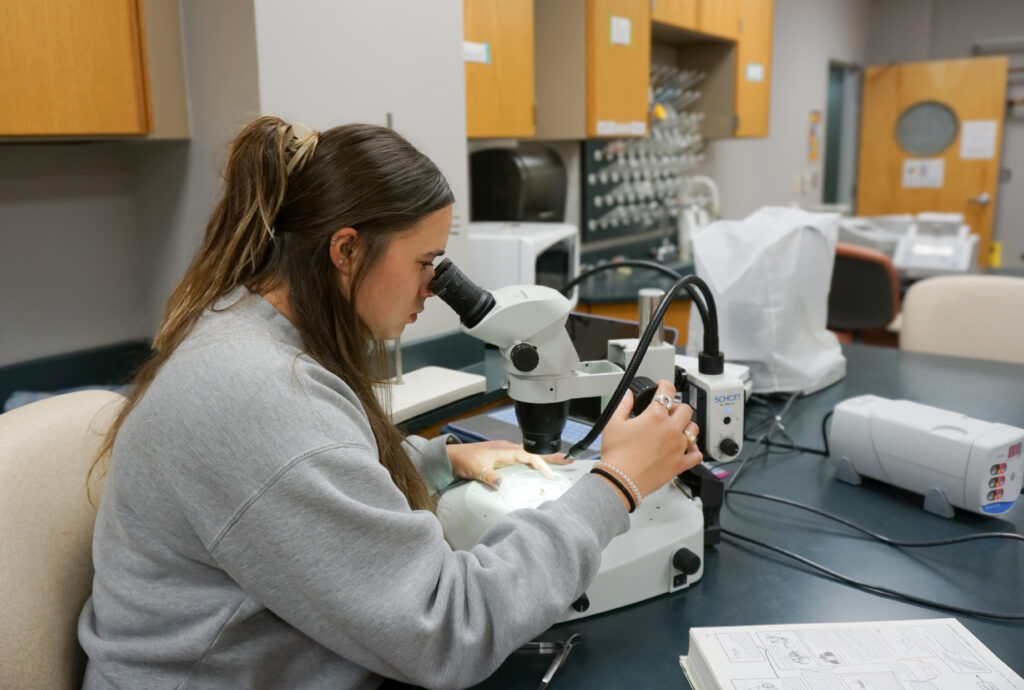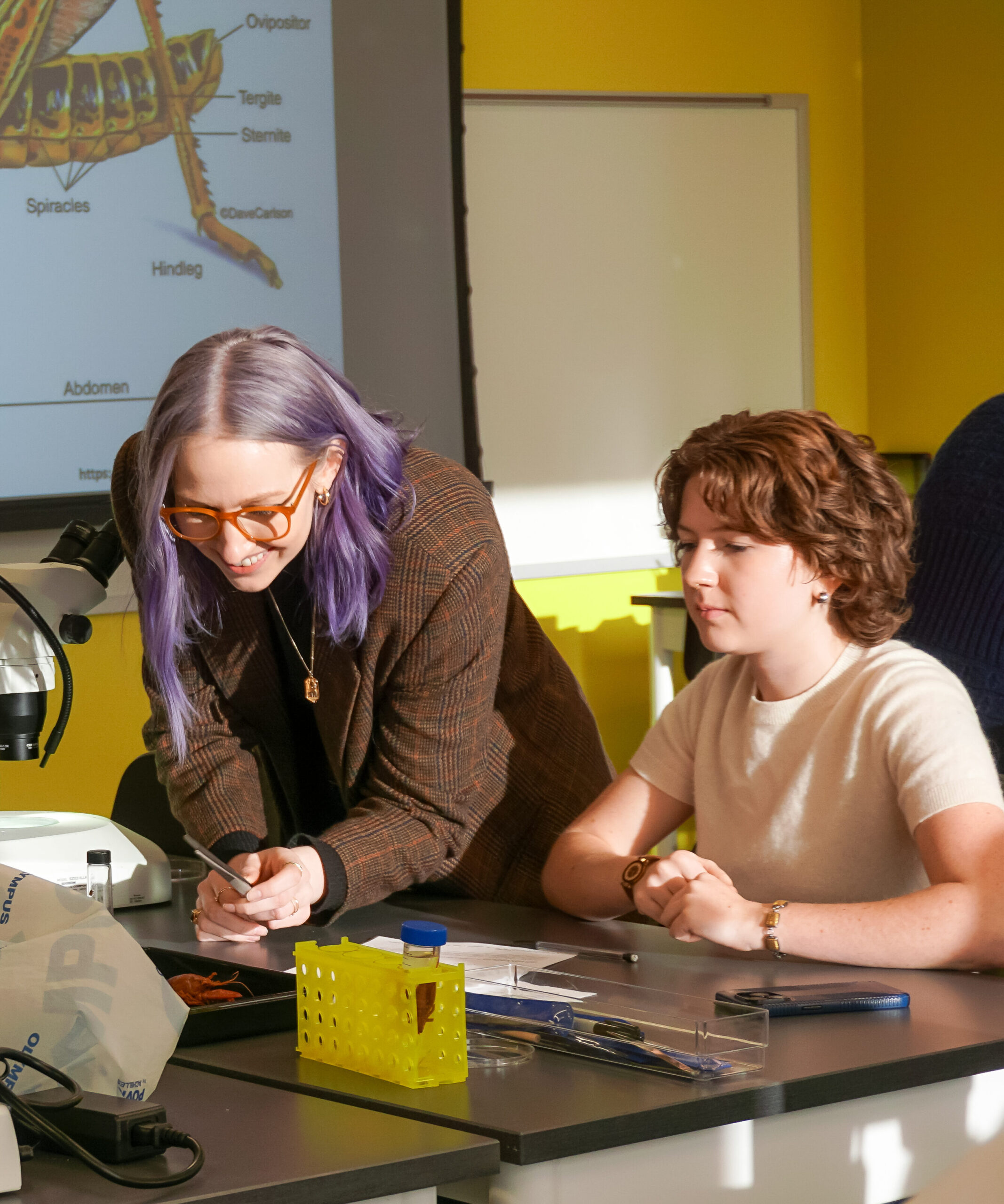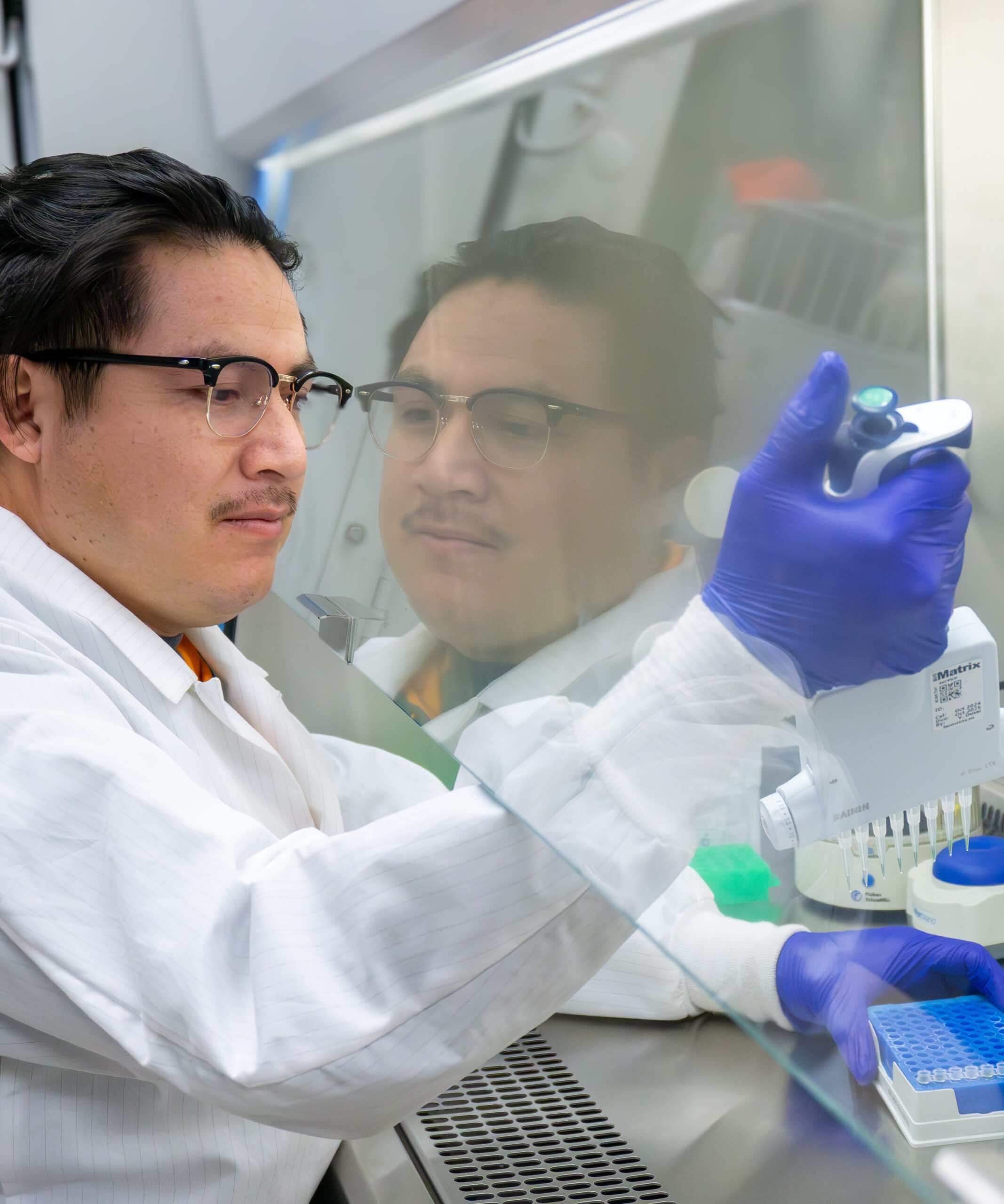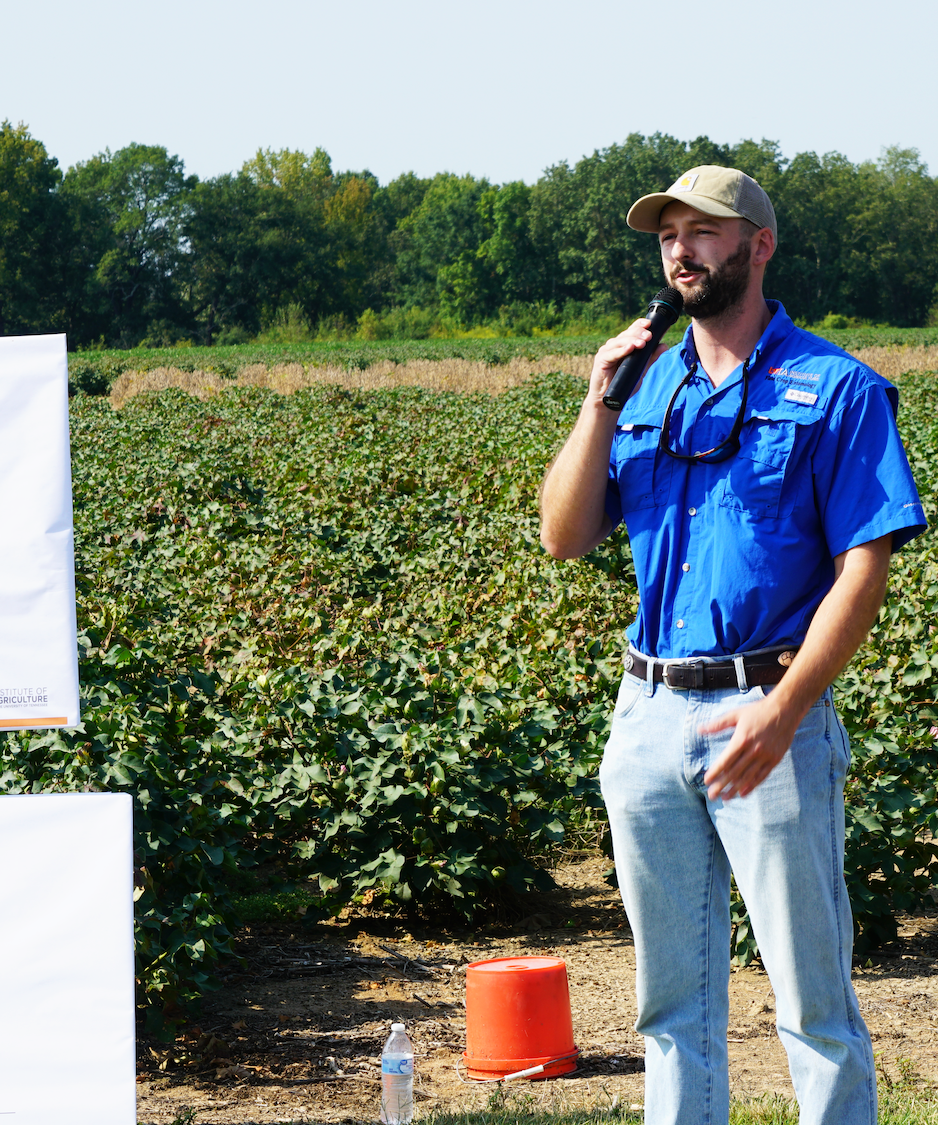EPP students have the opportunity to study a range of topics related to plant pathology, entomology, and bioinformatics. Our students conduct basic and applied research at every level, from molecules and genes, to individuals and populations, to species and communities. Our graduates are competitive for positions at academic institutions, government agencies, agricultural industries, and other private sector entities.
Entomology and Plant Pathology Program Highlights
- Our faculty members conduct applied and basic research in diverse areas of entomology and plant pathology.
- EPP graduate students are publishing in high-quality research journals.
- All graduate students have the opportunity for graduate stipends.
- Numerous job opportunities are available for graduates in various economic sectors.
- On-campus genomics hub and greenhouse space are available.
- We offer multiple diverse locations for research:
- Multiple UT AgResearch and Education Centers (located throughout the state)




